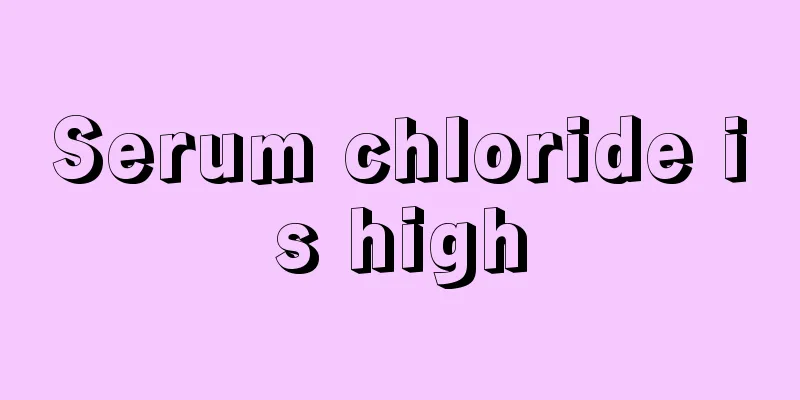Can I eat peaches if I have gallstones

|
Peach is a fruit produced in late spring and early summer. Many people like to eat peaches, not only because of its crispy and sweet taste, but also because peaches are rich in nutritional value and medicinal effects on the human body. However, people who suffer from certain diseases cannot eat peaches because peaches will aggravate their condition. If a person has gallstones, can they still eat peaches? Can I eat peaches if I have gallstones? Although there is a saying among the people that peaches are good for health, it is mainly because peaches are rich in nutrients, especially high in iron. Eating them regularly can help prevent and treat anemia, and the pectin in them can also prevent constipation. However, you should not eat too many peaches. One a day is enough. Especially for those with weak spleen and stomach and diarrhea as the main symptom, they should not eat too many peaches, otherwise it will easily increase the burden on the gastrointestinal tract. In addition, peaches are sweet and warm in nature, so people who are prone to getting angry should not eat them too much. It is best not to eat peaches that are not fully ripe, as eating them can easily cause bloating or diarrhea. Health experts believe that peaches are warm foods (Tip: Foods can be simply divided into five properties: cold, cool, warm, hot, and neutral). Warm foods: Pharmacologically speaking, they have the effects of warming the middle, assisting yang, and dispersing cold, and are often used for cold diseases. Some patients with gallstones have Yin deficiency or damp-heat constitution (Tip: the human body can be simply divided into six disease-prone constitutions: Yin deficiency, Yang deficiency, Qi and blood deficiency, phlegm and dampness, blood stasis, and Qi stagnation). People with Yin deficiency or damp-heat constitution often show "heat" symptoms such as dryness, getting angry, acne, and irritability, and they are all forbidden to eat warm and hot foods. Therefore, the warm nature of peaches just contributes to the "heat" syndrome in the body of patients with gallstones. In summary, people with gallstones should not eat warm foods such as peaches. Benefits of eating peaches Peach can be said to be the most suitable fruit for patients with hypertension. Of course, for those patients with cough, eating peaches is also the best dietary therapy for treating cough. People always regard peach as a symbol of good fortune, longevity and auspiciousness, and it is known as "longevity peach" and "fairy peach" among the folks. Among fruit resources, peach is known as the "best fruit in the world" for its beautiful shape and sweet texture. People often say that fresh peaches are good for health, mainly because peaches are plain in nature and have high nutritional value. In addition to containing a variety of vitamins, fruit acids, and inorganic salts such as calcium and phosphorus, peaches also contain 4-6 times more iron than apples and pears. [Nutritional effects] Peaches have the effects of replenishing qi and blood, nourishing yin and promoting body fluid. It can be used for people who suffer from qi and blood deficiency, sallow complexion, thin muscles, palpitations and shortness of breath after a serious illness. Peaches are high in iron and are an ideal supplementary food for patients with iron deficiency anemia. Peaches are high in potassium and low in sodium, making them suitable for patients with edema. Peach kernel has the effects of promoting blood circulation, removing blood stasis, moistening the intestines and promoting bowel movements. It can be used as an auxiliary treatment for amenorrhea, bruises, etc. Peach kernel extract has an anticoagulant effect and can inhibit the cough center and stop coughing. At the same time, it can lower blood pressure and can be used as an auxiliary treatment for patients with hypertension. [Applicable people] It can be eaten by the general public. 1 each time. [Special Tips] Do not eat unripe or rotten peaches. [Health Traffic Light] People with poor gastrointestinal function, the elderly and children should not eat too much. People with diabetes should eat it with caution. |
<<: The best way to remove gallstones
>>: Which department does gallstones belong to
Recommend
How to treat different types of ovarian tumors
Ovarian malignant tumors cause many patients to s...
What are the fruits that nourish the kidneys
The health of the kidneys is indeed a concern for...
What are the symptoms of rib fracture
The ribs are located in our chest cavity. If the ...
Transferrin is low
Transferrin is a very important protein in the bo...
Coagulant blood collection tube
I believe that most of us have been to the hospit...
What to do if you have a high hairline? These methods can improve
Many people have different hair qualities and sca...
Can tea make eyelashes longer?
Everyone wants to have long eyelashes, especially...
How long can a patient with malignant nasopharyngeal cancer live without treatment?
The survival period of untreated nasopharyngeal c...
How to drink honey to protect liver and nourish kidney
Honey moisturizes the intestines and promotes bow...
Treatment of periodontitis, two steps
Periodontitis is a chronic disease, which is main...
Why do I always laugh in my dreams?
The situations in dreams sometimes occur in real ...
Blinking can prevent aging
I believe that office workers all know that blink...
How to make single eyelids become double eyelids naturally
There are many girls with single eyelids, and man...
The top ten best times in life
Doing the right thing at the right time can achie...
There are brown spots on the legs
Skin disease is a relatively common disease. Most...









